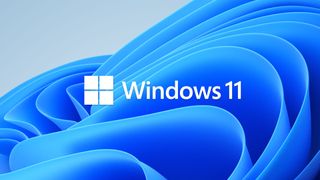Hardware vendors can avoid TPM 2.0 for Windows 11 if needed: here's how
The Phantom Menace Dilemma

While there’s been plenty of praise for Windows 11, Microsoft’s TPM requirements haven't been communicated well. Fortunately, it’s been discovered that some hardware manufacturers will be able to bypass this for some machines.
With its new look, great wallpapers alongside the start menu now centered, there’s plenty to like about Windows 11. It looks to be an update that’s been made for both tablets and computers alike, not one or the other in how Windows 8 was designed.
However, for TPM, shortened to Trusted Platform Module, it’s causing concern for some users when they eventually want to update to the new operating system. Microsoft has now clarified that not every PC needs to have this feature installed, but there is a caveat to this.
- Windows 11 is here
- Here are the best laptops of 2021
- Let’s talk about the great wallpapers in Windows 11
What is TPM?
While we’ve explained TPM in great detail, essentially it’s an aspect of hardware that deals with the security of your PC, making sure that nothing is compromised. It can be found on your motherboard as a very small chip that monitors any vulnerabilities, while also enabling features such as Bitlocker, found since Windows Vista.
While the first version has been around since 2006, version 2.0 has been around since 2011. A little known fact that TPM 2.0 was to be a requirement from Windows 8.1, however this was quickly changed to be an optional requirement after some pushback from hardware vendors.
It looks as though this has been in the works ever since, and Microsoft has been biding time for TPM 2.0 to be more widely available.
A bypass with a catch
Microsoft released a document soon after the announcement of Windows 11, which made sure to mention the fact that TPM 2.0 can be avoided for some PCs with some manufacturers, but there has to be a valid reason for it.
Get daily insight, inspiration and deals in your inbox
Sign up for breaking news, reviews, opinion, top tech deals, and more.
If there is, the TPM requirement can be avoided. It states in the document that, “Upon approval from Microsoft, OEM systems for special purpose commercial systems, custom order, and customer systems with a custom image are not required to ship with a TPM support enabled.”
Time will tell whether the requirement will be lessened for Windows 11, but unfortunately the communication from Microsoft about this has been confused at best. Hopefully once the public beta arrives, there will be clearer clarification on just which PCs are eligible.
Via Windows Latest
- How to download Windows 11

Daryl had been freelancing for 3 years before joining TechRadar, now reporting on everything software-related. In his spare time, he's written a book, 'The Making of Tomb Raider'. His second book, '50 Years of Boss Fights', came out in 2024, with a third book coming in 2025. He also has a newsletter called 'Springboard'. He's usually found playing games old and new on his Steam Deck, Nintendo Switch, and MacBook Pro. If you have a story about an updated app, one that's about to launch, or just anything Software-related, drop him a line.
Most Popular



